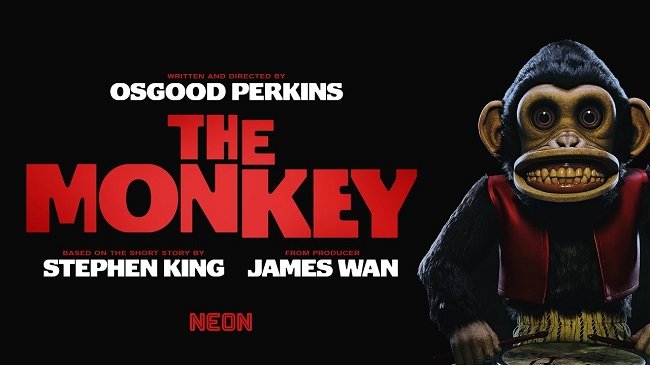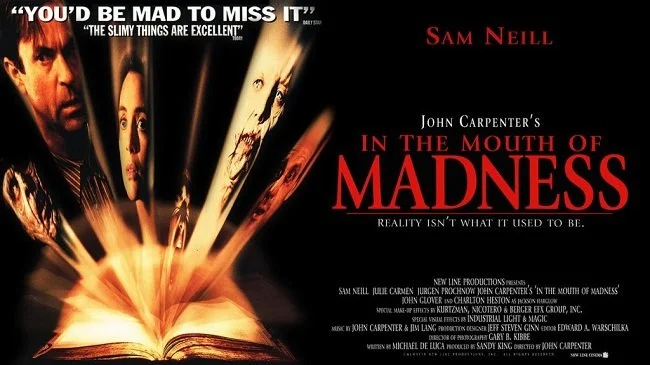Midsommar (2019)
There are numerous visual and narrative clues that telegraph both the plot and themes of Misdommar. A painting seen in the protagonist’s apartment offers a clear indication as to what is to come. Director Ari Aster deliberately and painstakingly creates a cinematic metaphor in which the emotional turmoil and distress of the lead character brought about by her disintegrating personal life, are mirrored in the real-world events that overtake her. However, this is far from a traditional horror movie with jump scares but more of a psychological thriller with a growing sense of disquiet and helplessness. The audience are presented with a fait accompli in so far as its clear that things are going to turn bad for all concerned and there is no deeper explanation for events other than what we are presented with. And therein lies the rub. Midsommar goes all in on “the journey” and it is down to the viewer as to whether that is an enthralling experience or not.
College student Dani Ardor (Florence Pugh) four-year relationship with anthropology student Christian (Jack Reynor) is in serious decline due to the emotional trauma of her parents’ murder at the hands of her bi-polar sister. Dani is grudgingly invited by Christian to attend a nine-day festival celebrating midsummer in rural Sweden. Along with three mutual friends, Josh (William Jackson Harper), Mark (Will Poulter) and Pelle (Vilhelm Blomgren) whose family comes from the region, they travel to Hälsingland. The Hårga community greet them and it initially seems to be a very traditional event, complete with white linen garments, floral motifs and copious amounts of folk music played on woodwind instruments. But the imbibing of hallucinogenic mushroom tea results in a bad trip for Dani and then a ritual takes very dramatic turn for the worse. The group try to rationalise events and Josh advocates staying as the festival is integral to his thesis. Yet matters continue to take a more sinister course and as they do Dani’s mental state becomes increasingly unsettled.
The second act of Midsommar in which the Hårga slowly become exactly what the audience suspected, is a long slow burn. The film is 147 minutes and revels in its languid pace. The clean, crisp beauty of the region is vividly capture by director of photography, Pawel Pogorzelski. The production is filled with geometric patterns, pagan symbolism and sun-drenched scenery. Often murals, artwork and the cultural history of the Hårga clearly indicate that our cast are doomed. Depending how you approach the film and your perception of the characters, dictates how quickly you start questioning the logic of their staying. You will either accept the western cultural propensity for people to eschew the bizarre and cling to the normalities of society. Or you will start yelling at the screen soon after the CGI drug trip. The dread and tension that is usually inherent in the way a genre movie is crafted, is optional here and dependent here on whether you choose to supply it yourself.
Regardless how you feel about some element of Midsommar, Florence Pugh is compelling as a woman trying to master her emotions as her mind and events spiral out of control. But the question remains as to whether this is really a horror movie or drama about mental health. The screenplay, also written by Ari Aster, manages to explore several cultural themes. It considers how commercial tourism commodifies and feeds off other countries culture. The central story of Dani and Christian is ultimately a rather vindictive breakup drama and is honest in showing that most relationships do not end “on good terms”, despite the pop culture narrative to the contrary. Ultimately, the Hårga community and its festival are simply a Hitchcockian "MacGuffin" to hang a series of contemporary social talking points upon. As mentioned, this is not a study of the pagan world versus modern society nor is it a traditional story with all the associated cinematic trappings. Midsommar paints a protracted vignette for your consideration and then ends.
Once again I find myself returning to a subject I have referenced before; my own overfamiliarity with not only the horror genre but cinema per se. For me Midsommar is a modern variation on a classic theme, presented in a semi-arthouse fashion. If you have not experienced anything like it before then it’s style, attitude and candour may well leave a marked impression. It certainly doesn’t pull its punches and it is also happy to provide a suitably bleak conclusion. But if you have a wider familiarity with the folk horror genre then it lacks the impact that some critics and fans are lauding. Naturally, the shadow of Robin Hardy’s The Wicker Man looms large and one cannot watch Midsommar without referencing that movie at some point in the proceedings. For me the film is an interesting curiosity. I was impressed by aspects of the production but also critical of its length and the indulgences of the director. Like his previous movie Hereditary, the enthusiasm and excitement of vocal genre fans has generated an expectation that is not necessarily going to be met among casual viewers. Horror movies have always been successful at the box office but the press is hellbent on claiming that there’s a genre renaissance at present. If you like the meat and two veg approach of the recent Pet Sematary remake, don’t watch Midsommar expecting the same. It is a nuanced and acquired taste that will not be to everyone’s liking. I don’t believe it was to mine.




























